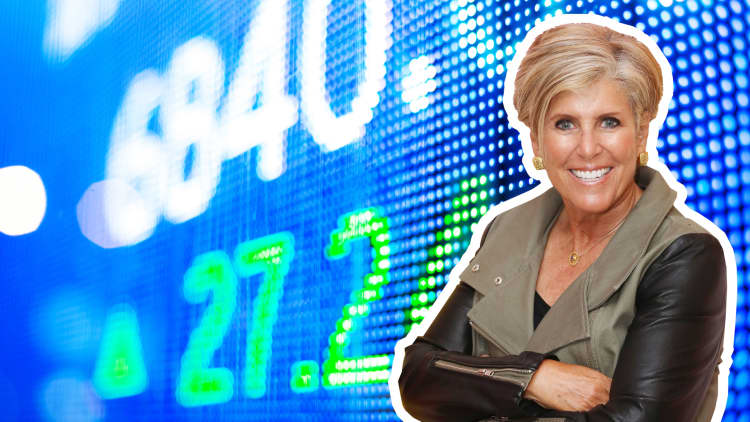Roku, a video streaming device manufacturer and smart TV software licenser, was the best performing U.S. tech stock of 2019 — and its shares rose 337% for the year.
Despite the fact that Roku only recently went public — on Sept. 27, 2017 — its impressive stock market gains over the last two-plus years have already proven lucrative for shareholders.
If you invested $1,000 in Roku at IPO, that investment would be worth more than $9,500 as of Jan. 22, 2020, for a total return of around 859%, according to CNBC calculations. In the same time frame, by comparison, the S&P 500 earned a total return of around 42%. Roku has a current stock price of around $134.
While Roku's shares have done well over the years, any individual stock can over- or under-perform, and past returns do not predict future results. For example, a recent driver of Roku's stock success stems from the fact that investors believe the company will only benefit as more and more streaming services are created, most of which are compatible with its devices.
CNBC: Roku's stock as of January 2020.
What's Roku been up to?
In September 2019, the company released a brand new Roku player lineup. This launch included a revamped, more streamlined version of Roku Express, a high-speed HD streaming stick that's USB-powered, as well as a more powerful version of the Roku Ultra, a premium HD-enabled streaming player.
In addition to producing entertainment devices, Roku also has an advertising business, which allows the company more control over the ads running on its platforms and drives revenue via monetized video ad impressions. It's predicted Roku will make $632.9 million from ad sales in 2020.
Recently, Roku has also been working on expanding its reach globally. In mid January, it announced that Roku TV is now available in Brazil and allows users to stream TV shows, movies and Globoplay, a Brazilian streaming service that provides users access to locally produced content.
The video platform also announced this month that it would be partnering with 15 global TV brands in 2020 to manufacture affordable Roku TVs in Canada, Mexico, the United States and the United Kingdom. These licensee brands include companies such as Philips, Polaroid, Walmart's Atvio, InFocus, JVC and more.
Walmart, which has been a longtime partner of Roku's, is a brand partner and sells exclusive Roku devices within its stores.

It's not just product launches and partnerships impacting Roku's stock. On Dec. 16, 2019, the company announced that its CFO, Steve Louden, who has been with the company since 2015 and helped to oversee its IPO, would be stepping down from his role once his replacement is found. That same day, Roku's stock fell 4% in extended trading hours.
The latest on Roku stock
Despite Roku's stock market success since IPO, industry analysts are skeptical about how it will fare now that more large companies, such as Disney and Apple, are joining the streaming war. Their concerns have to do with whether Roku, which currently leads the streaming player market, will falter due to pricing pressure from competitors.
It's also unclear how a potentially volatile market could impact Roku shares given the recent influx of streaming rivals.
In 2019 alone, Roku's stock shifted at least 10% on 12 different occasions — and half of those occurrences were downturns. Now that there are even more players in the streaming space, skeptics say it's likely that Roku shareholders will have to endure even more ups and downs going forward due to the current competitive nature of the streaming industry, CNBC reports.
If you are considering getting into investing, experts, including Warren Buffett, often advise starting with index funds, which hold all of the companies in an index, such as the S&P 500. Because index funds aren't tied to the performance of a single business, they're less risky than individual stocks, making them a safer choice for beginners.
Here's a snapshot of how the markets look now.
Like this story? Subscribe to CNBC Make It on YouTube!
Don't miss:



